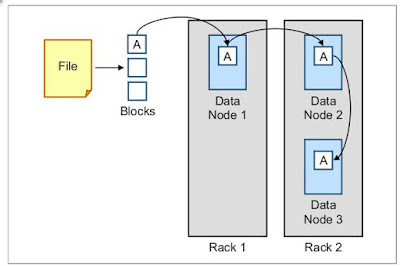Big Data and AI in Smart Home Technologies
Introduction:
Imagine a home that anticipates your needs, optimizes energy usage, enhances security, and provides a seamless living experience. This vision is becoming a reality with the integration of Big Data and Artificial Intelligence (AI) in smart home technologies. By leveraging vast amounts of data and advanced AI algorithms, smart homes are evolving into intelligent environments that offer unprecedented convenience, efficiency, and personalization. In this article, we will explore how Big Data and AI are transforming smart home technologies, the benefits they bring, and the challenges that lie ahead.
Body:
Section 1: The Role of Big Data in Smart Homes
Big Data refers to the vast volumes of structured and unstructured data generated by smart home devices and sensors. This data encompasses a wide range of information, from energy consumption patterns and temperature readings to user preferences and security logs.
Data Collection: Smart home devices, such as thermostats, lighting systems, security cameras, and smart appliances, continuously collect data on their usage and environment. This data is transmitted to central hubs or cloud platforms for analysis.
Data Analysis: Advanced data analytics techniques are used to process and analyze the collected data. By identifying patterns and trends, smart home systems can make informed decisions and offer personalized experiences.
Data Storage: Efficient data storage solutions, such as cloud storage and distributed databases, are essential for managing the massive volumes of data generated by smart homes. These solutions ensure data availability, security, and scalability.
Section 2: The Impact of AI on Smart Home Technologies
Artificial Intelligence (AI) plays a pivotal role in transforming raw data into actionable insights and intelligent behaviors. AI algorithms, including machine learning and deep learning, enable smart home systems to learn from data, adapt to user preferences, and automate tasks.
Personalization and Adaptation: AI-powered smart homes can learn from user behavior and preferences to offer personalized experiences. For example, AI can adjust lighting and temperature settings based on individual preferences and daily routines.
Predictive Maintenance: AI can predict potential issues with smart home devices and appliances by analyzing performance data. This enables proactive maintenance and reduces the likelihood of device failures.
Energy Efficiency: AI algorithms optimize energy consumption by analyzing usage patterns and making real-time adjustments. For instance, AI can adjust heating and cooling systems to minimize energy waste while maintaining comfort.
Enhanced Security: AI enhances home security by analyzing data from security cameras, motion sensors, and access control systems. AI can detect unusual activities, recognize faces, and send real-time alerts to homeowners.
Section 3: Key Benefits of Smart Home Technologies
The integration of Big Data and AI in smart home technologies offers numerous benefits that enhance the quality of life for homeowners.
Convenience and Automation: Smart home systems automate routine tasks, such as adjusting lighting, controlling appliances, and managing security. This convenience allows homeowners to focus on more important activities.
Energy Savings: By optimizing energy usage, smart homes reduce utility bills and contribute to environmental sustainability. AI-driven energy management systems ensure efficient use of resources.
Improved Security: Smart home security systems provide real-time monitoring and alerts, enhancing the safety and security of the home. AI-powered analytics can identify potential threats and respond promptly.
Health and Wellness: Smart home technologies promote health and wellness by monitoring environmental factors, such as air quality and humidity levels. AI can also integrate with health monitoring devices to provide insights into residents' well-being.
Section 4: Challenges and Considerations
While the benefits of Big Data and AI in smart home technologies are significant, there are several challenges and considerations that need to be addressed.
Privacy and Security: The vast amounts of data collected by smart home devices raise concerns about privacy and data security. Ensuring that data is protected and used responsibly is paramount.
Interoperability: Smart home ecosystems often consist of devices from multiple manufacturers. Ensuring interoperability and seamless integration between different devices and platforms can be challenging.
Cost and Accessibility: The initial cost of smart home technologies can be a barrier for some homeowners. Making these technologies more affordable and accessible is essential for widespread adoption.
User Education: Educating homeowners about the capabilities and benefits of smart home technologies is crucial for maximizing their potential. Users need to understand how to operate and maintain their smart home systems effectively.
Conclusion:
The fusion of Big Data and AI in smart home technologies is revolutionizing the way we live, offering enhanced convenience, efficiency, and security. By harnessing the power of data and intelligent algorithms, smart homes can adapt to our needs, optimize resource usage, and create a more comfortable and sustainable living environment. However, addressing challenges related to privacy, interoperability, cost, and user education is essential for realizing the full potential of these technologies. As Big Data and AI continue to evolve, the future of smart homes promises to be even more intelligent, responsive, and transformative. So, embrace the possibilities and step into the world of smart living.




Comments
Post a Comment